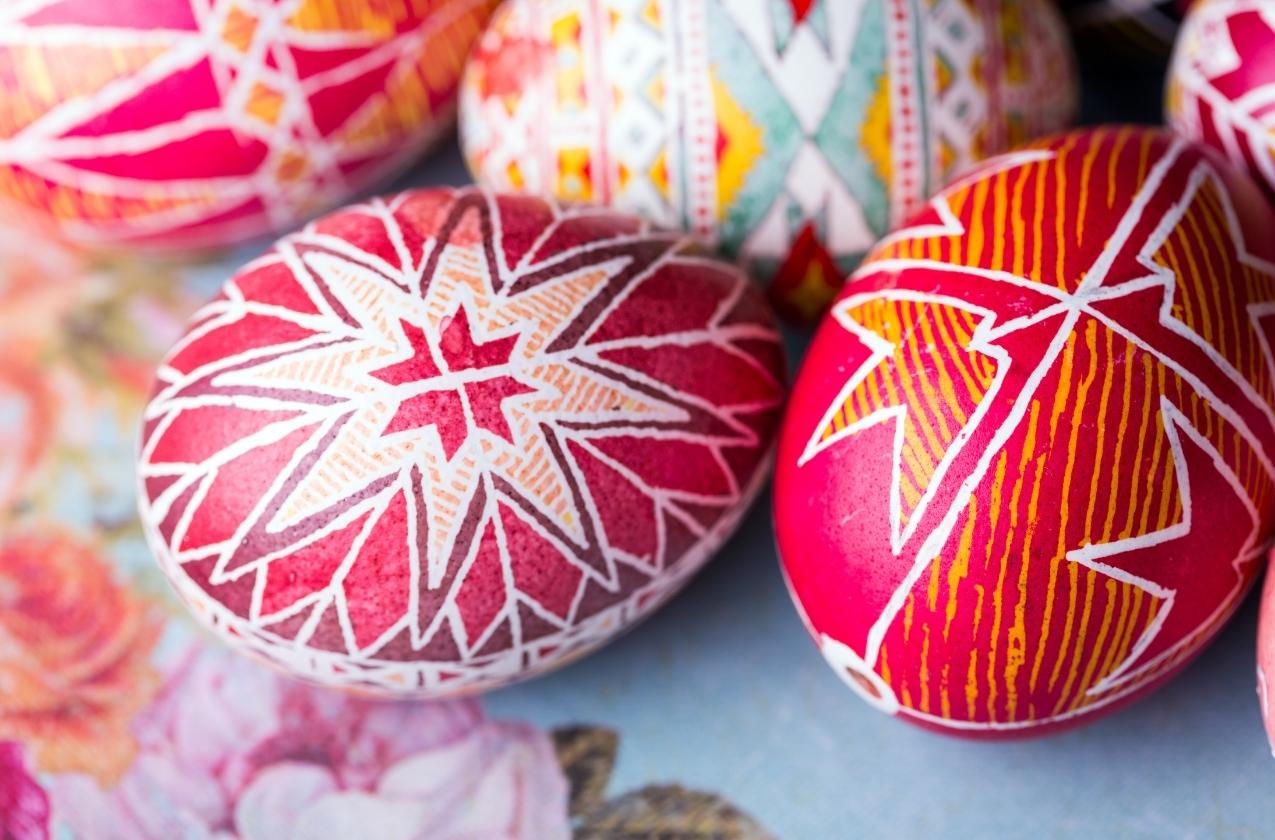The Easter egg is the main attribute of a bright holiday. In Christianity, the Easter egg is a symbol of the Holy Sepulchre, in which eternal life is hidden. However, the custom of painting eggs appeared long before Christianity, and it was associated with secret rituals. Modern "pysanky" and Easter eggs also have their own meaning. What do the patterns on the Easter eggs say?
The best Easter gift is an Easter egg. Craftsmanship that has been passed down from generation to generation.
In Christian culture, the custom of painting eggs came from an ancient tradition, according to which Mary Magdalene, holding a chicken egg in her hand, informed the Roman emperor Tiberius of the resurrection of Christ. When the emperor heard the good news, he said that no one can rise from the dead, just as a white egg cannot turn red. The egg that Mary was holding in her hands immediately turned red, to which the confused Tiberius replied: "Indeed he has risen!" Since then, on Easter, our ancestors began to paint eggs.
Each region has its own particular pattern and colour. For our region, the iconic ornament is the "magpie", which looks like a sun with legs. Chumaks used to take such Easter eggs with them on the road. The name arose because the Chumaki passed 40 different paths from the Easter egg. In the Odessa region, two colours always prevailed - green and blue, they were usually applied on a drawing similar to a wave. If you believe, then green is the colour of life, prosperity, as well as harmony, and blue or blue is the eternity of the sky, chastity and constancy.
And in the Odessa region they loved to bleach Easter eggs. The coloured particles of the painted egg were covered with wax, leaving uncovered the parts that one would like to see white. After that, the egg is placed in a linen or vinegar. The color pattern remains under the wax, everything else is bleached.
An egg painted with a certain ornament was considered a powerful talisman. They applied the ornament using different techniques.
The most important thing in this work is to decide on the drawing. You can't mindlessly draw. Easter egg is a talisman. Think about what you want to wish to the person you are going to give it to. For example, a dove is a symbol of sympathy for a young man, a star is a wish for happiness, oak leaves - a wish for good health, the triangle means the trinity of the world (earth, water and fire), and the cross means the universe, the square (or rhombus) is a symbol of material wealth, well-being and the feminine principle in nature.
Pysanka
To make a pysanka, you need to paint the egg with multi-coloured drawings and patterns. They believed that the Easter eggs would turn out good only when there was no stranger around during its production, so they painted Easter eggs mostly alone.

Krashanka
Our ancestors wrapped eggs in the leaves of different trees and tied them with a thread, after which they dyed them using natural dyes - onion husks, tea, beets.

Krapanka
An Easter egg made using the “speckled†technique is initially painted in one colour, and then painted with wax - splashes, drops and dots. Multi-coloured dots on the egg speak of fertility, with the advent of Christian culture, it is a symbol of the tears of the Mother of God. Points of the same colour represent the center of the universe, the sun and stars.

Dryapanka
To make it, the egg is painted over with a dark dye. First, the ornament is applied with a pencil, and then the ornament is scratched with a sharp object (needle, awl or nail).

Malevanka
You can paint anything you want on such an egg - portraits, landscapes, any other pictures. It's the modern genre of Easter eggs.

In the old days, thirteen dyed Easter eggs were served on the festive table - according to the number of the apostles with Jesus Christ at the head.





















